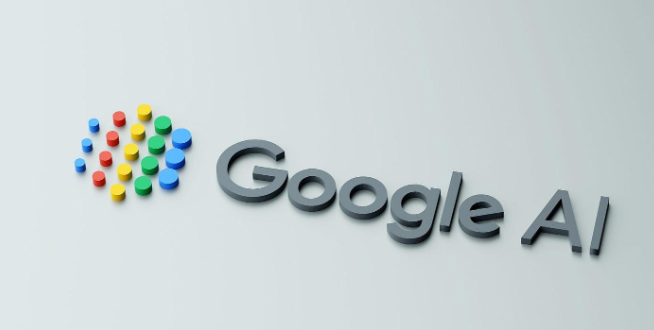A major legal battle began this week in a Washington, D.C. courtroom that could redefine the future of the internet. The U.S. Department of Justice (DOJ), backed by a coalition of state attorneys general, opened arguments in a historic antitrust case against Google, demanding sweeping reforms to dismantle the tech giant’s alleged monopoly over online search.
DOJ attorney David Dahlquist argued that Google’s extensive use of artificial intelligence technologies threatens to strengthen its dominance, requiring bold and immediate action. He called for drastic steps to prevent the company from leveraging AI to extend its reach even further into the digital ecosystem.
According to Dahlquist, “Now is the time to make clear to Google—and every other monopolist watching—that violating antitrust law comes with serious consequences.” The trial’s outcome, legal analysts say, could reshape how billions of people access information and services on the web.
Prosecutors Seek to Break Up Google’s Core Assets
As part of its proposed remedies, the DOJ has requested a court order to force Google to divest key parts of its business—most notably its Chrome web browser. The department also wants the court to eliminate the company’s exclusive deals with device manufacturers that ensure Google remains the default search engine on most smartphones, tablets, and laptops.
These exclusive agreements, previously deemed anti-competitive by U.S. District Judge Amit Mehta, have helped Google maintain its stronghold over internet search. The Justice Department argues that such practices have stifled innovation, limited user choice, and blocked competitors from gaining a foothold in the market.
Dahlquist told the court that the government’s remedies should not only address current antitrust violations but also consider emerging threats. He emphasized that AI-powered products like ChatGPT have introduced a new frontier in search, and Google’s grip on both search and AI threatens to further entrench its dominance.
AI as the New Battleground
The intersection between online search and artificial intelligence is now at the heart of the case. According to court documents, Google has already struck multimillion-dollar agreements with major manufacturers like Samsung to pre-install its Gemini AI app on smartphones, a deal reportedly extendable through 2028. Although the financial specifics remain confidential, Dahlquist described the monthly payment as “massive.”
Prosecutors warned that by embedding its AI tools across devices and integrating them with its search engine, Google could use this synergy to block rivals and steer users back to its own platforms. This loop of reinforcement, they argue, could further reduce consumer choice and competition.
Google’s integration of AI is a two-way advantage. It helps refine its machine learning models by analyzing vast amounts of user search data while simultaneously using AI products to funnel traffic back to its core services. In short, prosecutors claim the AI ecosystem is becoming both the tool and the weapon in Google’s dominance.
Google Pushes Back: Claims of Innovation Under Threat
On the other side of the courtroom, Google’s legal team rejected the DOJ’s allegations as an overreach. Lead counsel John Schmidtlein described the government’s proposals as a “wish list” created by competitors unable to match Google’s technical achievements.
He argued that the suggested remedies would unfairly reward rivals and penalize innovation. “Other AI developers want handouts even though they’re doing just fine,” Schmidtlein said. He insisted that Google’s AI ventures lie outside the scope of the case, which centers specifically on search engine dominance.
In a blog post published the day before the trial, Google executive Lee-Anne Mulholland added that the government’s plans would risk derailing American innovation at a pivotal time in global technological competition. Google has already signaled that it intends to appeal any final ruling against it.
Big Tech’s Market Ties Under the Microscope
The Justice Department’s proposals go well beyond eliminating default search engine agreements. They also include forcing Google to share access to search data with smaller competitors and, if all else fails, even selling off its Android mobile operating system.
Such sweeping measures aim to swiftly level the playing field in a market long dominated by Google. In contrast, Google argues that cutting off payments to companies like Mozilla—developers of the Firefox browser—could destabilize parts of the open internet. Mozilla, for instance, relies heavily on revenue from its search partnership with Google.
To bolster its defense, Google plans to call witnesses from companies including Mozilla, Verizon, and Apple. Notably, Apple attempted to intervene in the case earlier, although the court dismissed its request.
A Political Legacy That Crosses Administrations
This trial marks a continuation of the U.S. government’s ongoing antitrust push against Big Tech, which began under the Trump administration and has continued under President Joe Biden. In court, Assistant Attorney General Gail Slater highlighted the bipartisan nature of the case, describing the remedies as “nonpartisan” and supported by current and former officials alike.
Last week, the DOJ celebrated another legal win against Google, this time in an advertising technology case filed during Biden’s term. These developments underscore a sustained government effort to curb what it sees as growing monopolistic behavior across Silicon Valley.
Meta Platforms, the parent company of Facebook, also faces its own antitrust challenges. Federal regulators have taken aim at Meta’s acquisitions of Instagram and WhatsApp, accusing the company of eliminating future competitors through strategic buyouts.
Industry Eyes on the Verdict
The tech world is closely watching this antitrust showdown, which could deliver precedent-setting decisions that influence everything from mobile app distribution to AI integration across search platforms.
Nick Turley, OpenAI’s head of product for ChatGPT, is expected to testify this week, offering insight into how AI developers view Google’s presence in both the AI and search arenas. His testimony could reinforce the Justice Department’s argument that Google’s presence looms large even in sectors still in their infancy.
If the court rules in the government’s favor, the decision could become one of the most transformative antitrust judgments since the breakup of telecommunications giant AT&T or the dismantling of Standard Oil. It would also establish the framework for how AI innovation intersects with antitrust enforcement in the 21st century.



